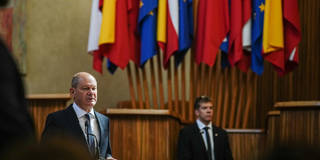Germany faces no shortage of crises, from the Russian security threat and political instability among Western allies to democratic backsliding and a looming economic crisis within the European Union. But, overall, the current government has proven surprisingly adept at managing the situation.
BERLIN – It has now been more than six months since German Chancellor Olaf Scholz stood before a special session of the Bundestag to address Russia’s unprovoked attack on Ukraine. “We are living through a watershed era. And that means that the world afterwards will no longer be the same as the world before,” he observed. “The issue at the heart of this is whether power is allowed to prevail over the law ... Or whether we have it in us to keep warmongers like [Russian President Vladimir] Putin in check. That requires strength of our own. Yes, we fully intend to secure our freedom, our democracy, and our prosperity.”

BERLIN – It has now been more than six months since German Chancellor Olaf Scholz stood before a special session of the Bundestag to address Russia’s unprovoked attack on Ukraine. “We are living through a watershed era. And that means that the world afterwards will no longer be the same as the world before,” he observed. “The issue at the heart of this is whether power is allowed to prevail over the law ... Or whether we have it in us to keep warmongers like [Russian President Vladimir] Putin in check. That requires strength of our own. Yes, we fully intend to secure our freedom, our democracy, and our prosperity.”